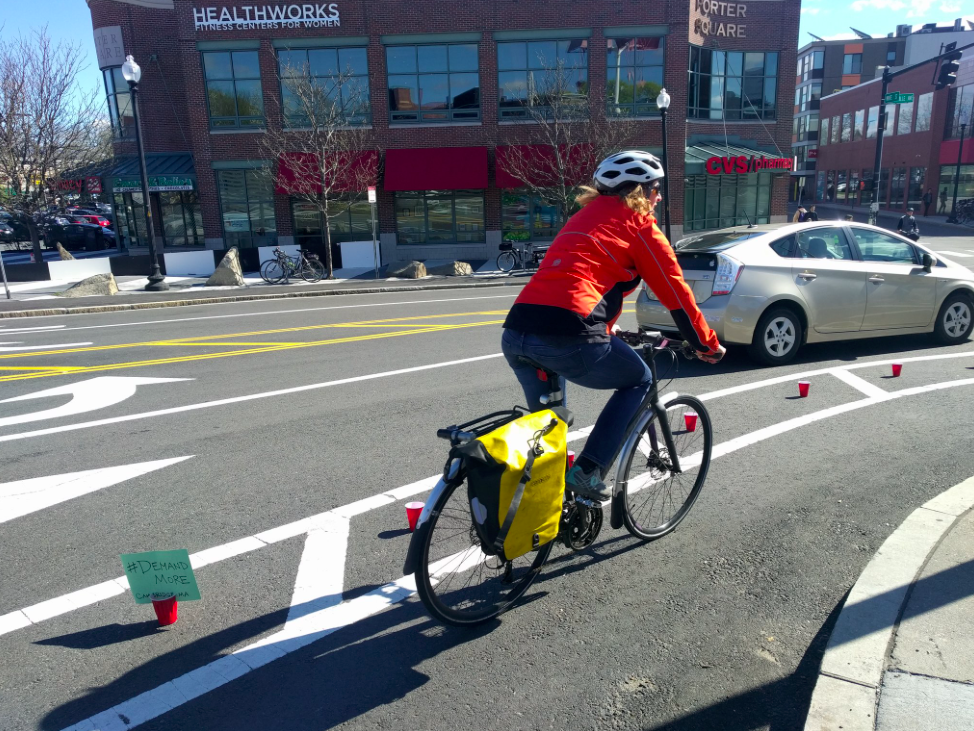Cyclists are seeing red.
Bike advocates around the country are using the red Solo cups to demonstrate the need for better bike lanes that actually protect cyclists by physically separating them from traffic.
Reports of the so-called Red Cup Project are coming in from all over. So far, we know they're in D.C., where activist Dave Salovesh was just killed in an unprotected bike lane:
Truck is gone and the whole block is yours.#RedCupProject #DemandMore pic.twitter.com/ckKUIFRSvr
— Jonathan Fertig (@rightlegpegged) April 26, 2019
The project was organized by Denver bike advocate Jonathan Fertig.
Fertig told Streetsblog: "Our hope is that the #RedCupProject will impress upon Mayor Bowser in DC, Mayor Hancock in Denver and mayors/city councilors everywhere that there's no more time to delay to rapid deployment of safe cycling infrastructure."
The protest is an example of "tactical urbanism," in which temporary unsanctioned public demonstrations call attention to design failings.






